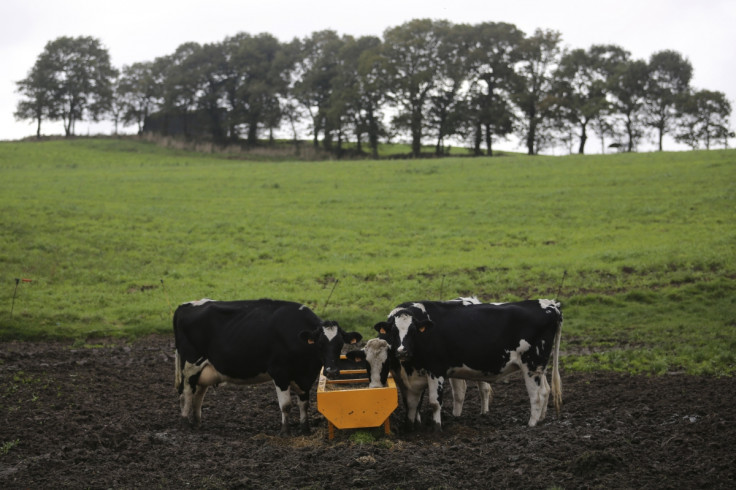Ritual Slaughter 'Cruelty' Ban: Muslims and Jews Unite in Battle with Government's Top Vet

Britain's top vet has been accused of 'inflaming' prejudice within the Jewish and Muslim communities following his proposal to stop the ritual slaughter of animals.
John Blackwell, president-elect of the British Veterinary Association, said the traditional practice of cutting animals' throats and allowing them to bleed to death for halal and kosher meat compromises animal welfare.
Blackwell said the evidence over the period of time that the animals suffered after they had their throats cut was 'unacceptable'.
He is now asking religious communities to allow animals to be stunned before they are killed.
If the two faiths both refuse to reach an agreement he wants ministers to follow Denmark's example and ban the slaughtering practice.
But Jonathan Arkush, from the Board of Deputies of British Jews, has hit back at Blackwell over his 'misleading' comments, arguing that they could 'inflame prejudice' against the two religions.
It is the first time the head of the UK's vets has demanded an end to the practice.
Speaking on BBC Radio 4 Today's programme, Arkush, said: "I really regret John Blackwell's remarks, which are completely misleading. Animals that are killed for the Muslim and Jewish markets do not bleed to death. Animals that are killed for the general market and the Muslim and Jewish markets are killed in exactly the same way. A large animal has its throat cut and that renders the animal insensible to pain and is unconscious."
Arkush also argued that animal welfare organisations such as the RSPCA have said pre-stunning fails to stun in between 9 and 31 per cent of cases.
But Blackwell said: "There is no insensibilty emparted to the animal by the act of cutting of its throat and these animals remain conscious by as much as seven seconds with sheep and up to two minutes in cattle, which is just not acceptable from a welfare point of view."
When asked whether the UK should follow the example of Denmark, he added: "Absolutely, as a veterinarian and as a scientist welfare, it is at the top of our list."
Arkush also opposed use of the word "ritual" as there was "no ritual in the slaughter of food for the kosher market" and in his opinion was a humane act designed to kill animals in a quick way.
He said: "If you take the lower end of nine per cent of animals' mis-stunned, this total number of animals who suffer that pain and distress vastly exceeds the whole kosher market by a factor of about 10."
As for Denmark's ruling, he described it as a political act 'designed for popularist reasons because of prejudice against Muslims'.
He added: "My worry is that Mr Blackwell is going down that road of speaking in ways that enflame prejudice and is ignoring the real animal welfare issues that cover all the market."
Jewish slaughter, known as shechita, has been practised in Britain dating back to 1804.
The European Commission will next month complete a study into whether shoppers should be told whether meat comes from animals which were stunned.
According to The Times, Shimon Cohen of Shechita UK asked why the Government was only proposing to label religious methods of killing, rather than telling shoppers their meat comes from an animal which was "shot, gassed, electrocuted, or drowned", as happens with non-religious slaughter.
Continental bans on kosher and halal slaughter since the 19th century had been designed to persecute Jewish and Muslim populations, he claimed: I will be seeing the Muslim Council of Britain shortly," he said. "We are one on this."
© Copyright IBTimes 2025. All rights reserved.





















